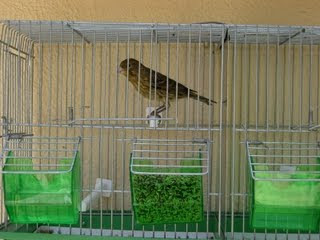FIGUEIRA
DE CASTELO RODRIGO, Portugal — On a rainy winter morning, Antonio
Mónteiro and two colleagues were pushing and pulling an ailing,
reluctant bull along a stony track in the Faia Brava nature reserve in
northeast Portugal.
Suddenly, Mr. Mónteiro pointed up. “Look! Africa!” he said.
A
dozen or so griffon vultures, huge birds with white heads and tawny
wings, were wheeling like hang gliders in the gray sky above the
boulder-strewn scrubland.
It
was to protect these magnificent birds and other rare and threatened
raptors like the golden and Bonelli’s eagles that Mr. Mónteiro and his
wife, Ana Berliner, both wildlife biologists, began about 15 years ago
to piece together Faia Brava, or “wild cliff” in Portuguese.
They
started in 1999 by buying for 10,000 euros a 20-hectare, or 49-acre,
parcel of rocky crags where the birds nest above the Côa River. With
very little money, they have amassed about 800 hectares in a
five-kilometer, or three-mile, stretch along the river. Today, an
organization of seven people, in addition to Mr. Mónteiro and Ms.
Berliner, aid the effort, and a variety of visitors come to observe the
creatures.
Protecting
the birds remains a top goal, but their conservation effort has grown
into something bigger that has the potential to bring even more people
and jobs to a poor region badly in need of both.
The
farm villages in the area, with their stone houses and narrow streets,
are picturesque but dying as their inhabitants age and their children
look for work in Portugal’s big cities or abroad.
Few
people want to try to eke out an existence from cereal crops and olive
trees planted in tiny patches of soil. The economic crisis, which
continues to hit Portugal hard, is making life even tougher.
“We are in the middle of a generational crisis that is more than an economic crisis,” Mr. Mónteiro said.
Whatever
it is, a small group of what may be called environmental entrepreneurs,
like Mr. Mónteiro and Ms. Berliner, are taking advantage of it to bring
a new vision and energy to the Côa Valley.
Many
are university-educated young people from Lisbon, Portugal’s capital,
or Porto, the second-largest city, who are attracted to the countryside
or want to get away from the urban rat race.
While
the hilly, near-desert terrain may be hell for small farmers, it is an
unspoiled heaven for those who appreciate it. Along with the spectacular
birds, there is a wealth of prehistoric rock carvings and medieval
castles. And the Côa River runs into the Douro River, whose valley is a
wine-lover’s destination.


